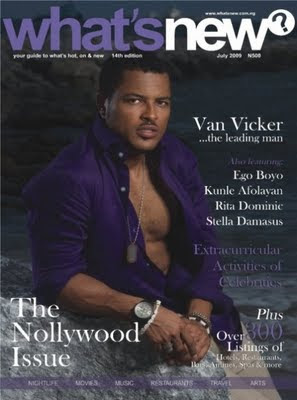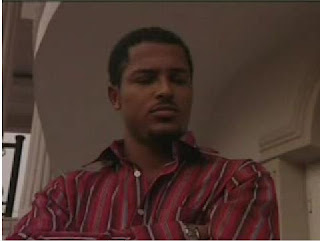HAIR business makes for a major profit in the African marketplace $300 a pack!
Hair business major profit African market
Have you actually met an African woman wait that long flowing hair? Well Nigerian women and the love for long Brazilian Indian hair has provided major business for marketers. yeah we say even Naijagals are getting into the wealth creation hair business!
According to the telegraph UK
Some Nigerians have reported that they have been warned to "do something" about their hair at work. Black women in the US and South Africa have pursued successful workplace harassment cases in similar incidents, saying it amounts to discrimination.
In Nigeria, that puzzles many. "South Africans like natural hair because they're not fashion-conscious," said a Lagos salon owner, Abogo Ugwokeghbe. "But Nigerian women like the latest fashion," he added.
Scores of them visit his popular DSalon Downtown chains to straighten their hair. Sodium hydroxide, the key ingredient used in the bi-monthly process, irons out even the toughest afro curls — but burns the scalp if left on too long. It's considered a worthwhile risk, with some perceiving it as a necessity in a hyper class-conscious society.
"No rich man will marry a girl with village [unstraightened] hair," declared Esther, 18, a rural migrant to the capital, Abuja, as chemical fumes wafted off the cream smothered on own scalp in the Natural Beauty salon, a four-seat outfit in a crowded market.
Another popular practice is the application of extensions known as weaves. Strands of hair are attached in a weave-like pattern. Market vendors generally claim to sell genuine versions of the most popular weave, known as a Brazilian — and made from real human hair.
Nigeria's love affair with human hair extensions emerged, via the US, back in the mid-1990s. Then, a handful of boutiques such as Aunty Funmi's sold imported extensions priced in dollars, highlighting those wealthy enough to afford them. Locals still call expensive extensions "Funmi" hair.
Now it's no longer reserved for the rich, extensions are worn by market women and students, part of Africa's growing middle class.
But not all hair is equal, as customers who live in penthouse suites and shantytowns jammed into DSalon Downtown testified. "At the moment, the fashion is to have Beyoncé's hairstyle," Ugwokeghbe said. "But it's like buying rice. You can buy rice in the market, or you can buy rice in the Sheraton."
That's where people like Sehomi Bellow come in. "There's no sign advertising my shop is because most people can't afford the prices," explained the owner of the exclusive Lagos-based hair boutique, Silkalyn, before reeling off the qualities of dozens of extensions displayed for sale.
"Malaysian hair is similar to Chinese, very strong," said Bellow, who branched out into neighbouring Ivory Coast and France after opening his shop three years ago.
Costs vary from $300–$800 (£194 –£515) and beyond – a third of the average salary in Nigeria — and depends on the origins: Russian manes are particularly sought after for their blond hues but "only celebrities can afford it", while Peruvian hair is catching on quick. The most expensive, remy, is hair that's been "remitted" — offered by Indian women at temples. "It all comes from one person's head only and it's the most valuable thing that Indians have, so they give it to God as a thank you," said Bellow.
Such hair is always retailed in long bunches, increasing its price as it's sold by the inch. "If your hair is short and you go to the temple, they will just take a razor to it — [it's] no use. God isn't interested by this short hair. God wants the one that takes two years to reach your bum-bum, that is well looked after and strong," said Bellow.
So, apparently, do millions of Nigerian women with money to spend. But for some, the translation of breakneck economic growth into designer hair is little to celebrate. "It's like a hangover from the colonial days when the ideal was a woman with long straightened hair, the black woman's equivalent of a blond bombshell. And it's like the further away we move from that ideal, the less beautiful we are," said akirede
With such a profitable business I'm glad to see that there are companies on Facebook using social media to sell the Indian Brazilian hair to consumers in Africa.why am I so happy about this is because in the past only a few Korean companies provided this service. Now a lot of African companies are getting in on the business.



Comments